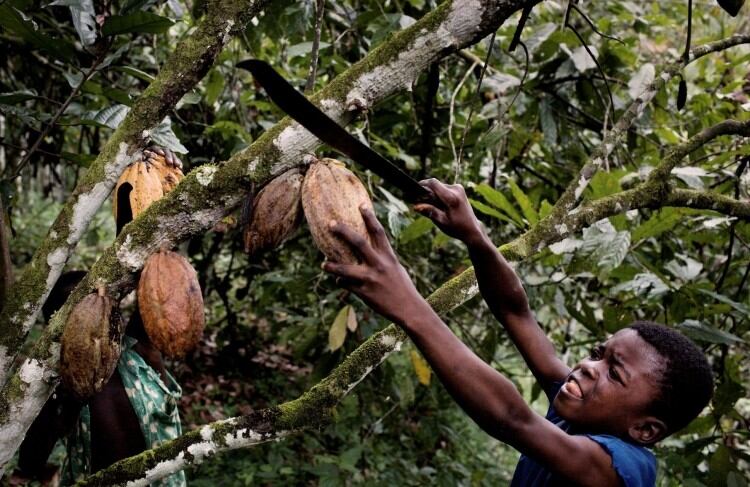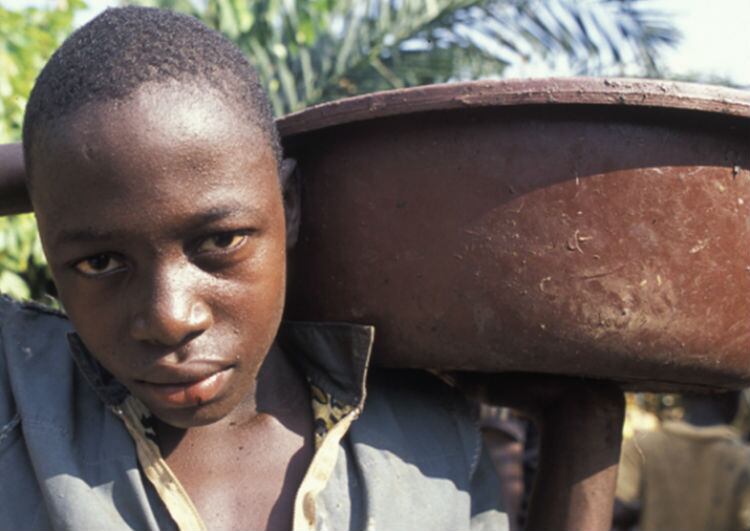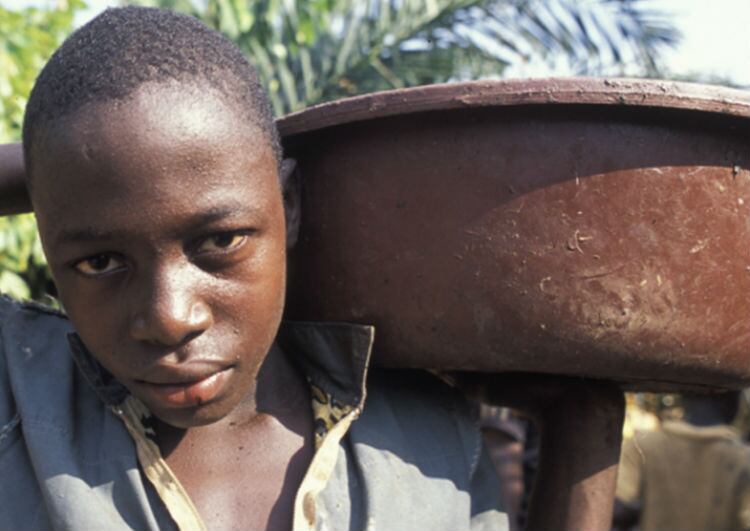In an exclusive interview with CN, ICI Executive Director, Matthias Lange said there are 2 million cocoa-growing households, primarily in Cote, d’Ivoire and Ghana, and to some extent, also in other West African cocoa-origin countries such as Cameroon, to prevent, identify and address child labour and forced labour concerns.
“Having said that, we've also got a number of strategic objectives - a scale-up of company systems is one of them, but very importantly that goes hand in hand with the reinforcement of national policies, national programmes, and national systems,” he said.
“The cocoa and chocolate industry and civil society are not going to solve child labour and forced labour on their own. So that needs to work.”
Lange said the ICI is producing a number of research and learning reports, influencing and working with the industry, and various certifiers, along with collaborating with governments in origin and consuming countries in order to influence their policies and their practices.
To tackle the issue of forced labour in addition to child labour, the ICI is recommending so-called ‘landscape approaches’ that have become more widely used when it comes to deforestation, “but trying to do the same on the social development and child labour front,” he said.
“So broadly speaking, these are some of the main strategic objectives … across various core functions around innovation, developing new tools, new approaches … and that's where we are supporting member companies and member organisations in the setup and roll-out of human rights due diligence systems. The annual report is basically taking stock of where we are one year into the strategy.”
In the report the ICI claimed that 590,000 cocoa-growing households were targeted by systems to prevent and address child labour by the end of last year, surpassing its initial pledge of 540,000 households.
The cocoa and chocolate industry and civil society are not going to solve child labour and forced labour on their own. So that needs to work -- Matthias Lange, ICI Executive Director,
This represents approximately a third of the full cocoa supply chain in Cote d’Ivoire and Ghana and is an important step toward its goal to cover 100% by 2025.
As Lange mentioned, the report also highlights the ICI’s continued focus on innovation and learning, technical advocacy, and capacity strengthening.
It said the work in 2021 to improve tools, develop new approaches, strengthen systems and promote the uptake of effective practices, in addition to new members and newly introduced member reporting obligations, helped to strengthen the organisation and its ability to achieve these objectives.
CLMRS
ICI continued to encourage increased adoption of its highly successful Child Labour Monitoring and Remediation Systems (CLMRS), or equivalent systems, in cocoa-growing communities.
The ‘Benchmarking study: Overview and definition of child labour monitoring and remediation systems’ (CLMRS), published in 2021, defines a shared understanding of what a CLMRS is, what it needs to do and how to measure success. As such systems are increasingly adopted and implemented by many different actors, the need for clear definitions and benchmarks to track progress has become more important, and the collectively developed Benchmarking study is an important step to support this, the report states.
“Throughout the year, we continued to innovate, test out and improve tools and approaches to tackle child labour and forced labour in cocoa,” said Lange.
The report also looks at important strides made in research and innovation to tackle child labour and forced labour. Over the past year, ICI explored the impact of cash transfers on child labour and the study, ‘Cash transfers, resilience and child labour in Ghana’, was the first of its kind to look at child labour in cocoa-growing communities and found that cash transfers reduced child labour by 16%.
Another study ‘Risk models to predict child labour: A review of different approaches to identify children at risk of child labour in cocoa’ was also published in 2021. The study shows how risk models can help vulnerable households and children to be identified more quickly and at a lower cost, helping to ensure support gets to where it is needed most, in addition to highlighting how important reliable data is to the accuracy of the model.
“As always, our ability as an organisation to bring different actors together within the sector, and to coordinate and drive progress is our key strength. In 2021, collective benchmarking efforts, collaboration with various national platforms for sustainable cocoa in Europe, with producing countries, and with the World Cocoa Foundation, in addition to our own member reporting requirements, have significantly contributed to setting ambitious standards to aim for,” said ICI Co-Presidents, Isabelle Adam and Mil Niepold.
EU legislation
Last year also saw many important policy and regulatory developments and the ICI advocated for human rights due diligence legislation at European level, joining other civil society organisations and cocoa and chocolate companies within the Cocoa Coalition, in addition to collaborating in several European sustainable cocoa platforms and the EU Cocoa Dialogue.
Like everyone in the cocoa sector, Lange believes that a ban on cocoa from Ghana or Cote d’Ivoire from entering Europe – and the United States - would have catastrophic effects for farmers.
“That would be really the worst-case scenario and that's certainly not something we don’t want to see because that would eventually punish the cocoa growing countries, punish the cocoa farmers, and punish their kids, while what is required is to put support systems in place at scale,” he told CN.
“So, I think scaling up systems that are implemented by the industry reinforcing in parallel national policies and programmes and systems and making sure that the two work hand in hand, is important.
“In the end, this is going to be the right way to make sure that the country puts in place the kind of traceability systems that will be required in order to meet the expectations from the [EU] legislation.
“I think those legislations should be seen as an opportunity more than as a threat … you know, at the end of the day, what does the legislation require? The scale-up of human rights, and due diligence systems and when implemented effectively, those systems can have a very positive impact on cocoa farmers and on their families.
“But all of those measures also require support from consuming countries, and that's sometimes the missing part of the equation: the EU, and the US also have their own responsibilities in order to tackle those issues at scale.
In addition, during 2021 the ICI said in its report it has introduced new member reporting requirements, designed to recognize efforts currently being made and motivate further action and investment, in addition to driving the rigour and transparency necessary in the sector.
- Listen to the full interview on the work being carried out by the ICI in our podcast chat with Matthias Lange.
- Read the ICI annual report here in full.



